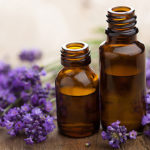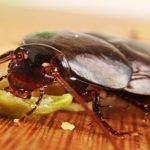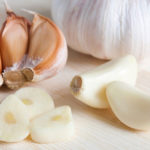Ginger, garlic, and onions are almost everyday ingredients in many Vietnamese dishes. For families who do not follow the Five Spices dietary guidelines, they rely on dishes with ginger, garlic, and onions almost every day.
Many people wonder if ginger, garlic, and onions can be toxic when sprouted?

Avoid eating sprouted ginger
Ginger is a spice and a valuable medicinal ingredient that supports many health issues. Ginger helps improve digestion, increase blood circulation, and improve digestive disorders.
In traditional medicine, ginger is considered a valuable medicinal ingredient. However, if the moisture level increases, ginger sprouts quickly.
When ginger sprouts, the nutritional composition changes compared to non-sprouted ginger. Specially, when ginger sprouts, it is not due to being buried in the ground, but sprouts from being exposed to humid air for a long time. Sprouted ginger often shows signs of mold and decay. Although it still smells and tastes strong, mold and discolored spots on sprouted ginger bulbs can be extremely dangerous. They can be harmful to the liver because they can produce sulfur. Furthermore, sprouted ginger loses some of its effectiveness compared to fresh ginger.
Therefore, when you see ginger that has sprouted and especially has black mold and white mold, throw it away immediately. Even if one end of the ginger bulb is still fresh, it is not advisable to peel off the moldy part and eat the fresh part, as the mold may have penetrated into the fresh part.
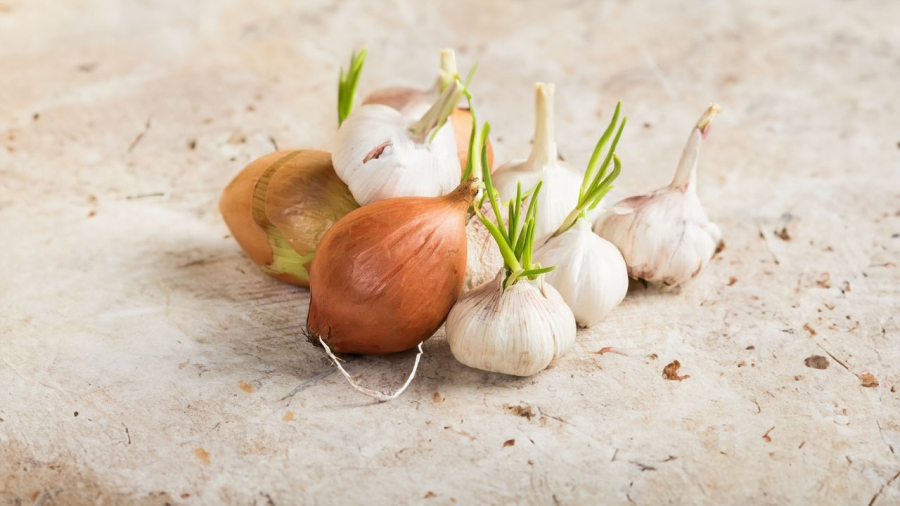
What about sprouted onions and garlic?
Onions and garlic are commonly seen sprouting, especially in winter. Onions and garlic are not only spices but also natural antibiotics that are good for health. When encountering favorable conditions such as a drop in temperature and humidity, onions and garlic sprout, and when the sprouts grow long, the bulbs become wrinkled and shriveled.
Sprouted onions and garlic do not produce toxins, but because nutrients are used to feed the sprouts, the bulbs become wrinkled and the sprouts are not as fragrant as the bulbs. Therefore, if you use sprouted onions and garlic, they are not toxic but may lack fragrance and guarantee the quality of the dish like using non-sprouted bulbs.
Some studies have shown that the sprouting process also stimulates an increase in some nutrients and antioxidants in onions and garlic.
Therefore, if the sprouted onions and garlic do not have any other signs such as rot, mold growth around the bulbs, they can still be used. However, in the case of moldy sprouted ginger, it is better not to eat it anymore because at that time, the toxins do not arise in the onion or garlic bulbs but from the mold attached to them.
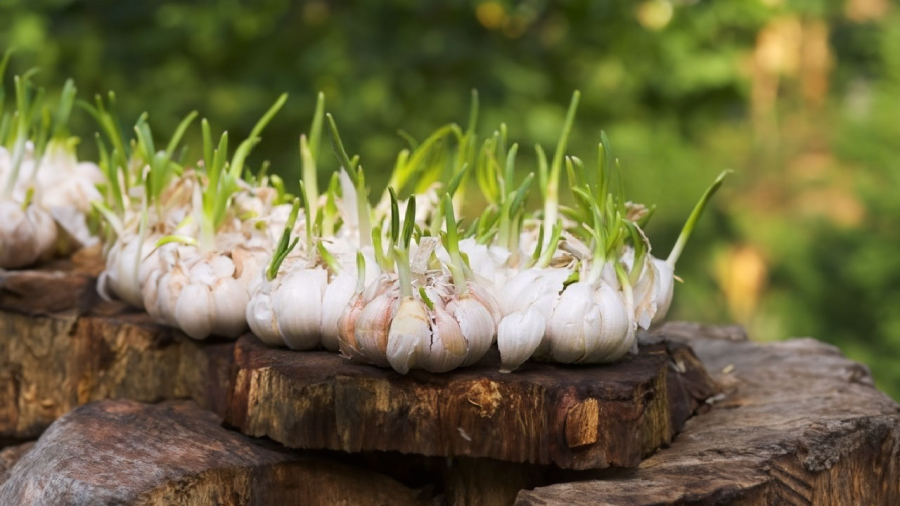
How to store ginger, onions, and garlic to prevent sprouting and shriveling
You can bury ginger in sand to prevent it from drying out and sprouting mold.
As for onions and garlic, they should be placed in a mesh or paper bag and hung up high to avoid dampness. Avoid storing them in the refrigerator.
How to Effectively Treat Fishbone Issues at Home
Everyone loves feasting on the deliciousness of fish during the holidays. But, unfortunately, choking on fish bones is an unavoidable issue that may lead to devastating consequences if left unattended for a prolonged period. Let’s see how Dien May Xanh can help us out when fish bones get stuck in our throat.
























